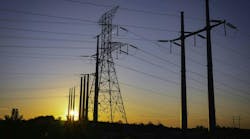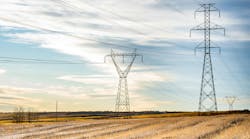The Virginia Department of Environmental Quality (DEQ) on April 27 filed with the Virginia State Corporation Commission recommendations for Pigeon Run Solar, LLC’s 20-MW distributed battery energy storage system (BESS).
As noted in the filing, Pigeon Run intends to build, own, and operate the BESS on about 1.1 acre in Campbell County, Va. The BESS would be located within a larger 60-MW solar generation project site on 612 acres, which would be covered by a permit-by-rule (PBR) from DEQ; the BESS would not be covered under the PBR and requires approval from the commission. The BESS would allow the solar facility to provide energy to the grid during periods when the photovoltaic solar panels cannot produce electricity, the DEQ said.
The DEQ said that the Office of Wetlands and Stream Protection (OWSP) recommends, for instance, that prior to beginning project work, all surface waters on the project site should be delineated by a qualified professional and verified by the U.S. Army Corps of Engineers for federal jurisdictional waters and by DEQ for state jurisdictional waters.
The DEQ said that the OWSP also recommends that wetland and stream impacts should be avoided and minimized to the maximum extent practicable.
Discussing natural heritage resources, the DEQ noted that direct coordination with the Department of Conservation and Recreation (DCR) Division of Natural Heritage was completed in December 2020, with DCR stating that the project is not expected to result in impacts to any natural heritage areas or state-listed plants and insects.
Of wildlife resources, the DEQ noted that a DEQ supplement states that agency databases were reviewed and certain federal and state-listed species were identified as potentially occurring within the BESS limits. The DEQ said that since the BESS site is currently row crop agricultural fields and provides poor wildlife habitat, the BESS construction is not expected to have a significant impact on wildlife resources.
Discussing historic and archaeological resources, the DEQ noted that a Phase I Cultural Resources Survey was completed for the project, and that no archaeological resources were identified by the Phase I within the BESS project area. According to the Department of Historic Resources (DHR) Virginia Cultural Resources Information System, one unassessed architectural resource is within 0.5 mile of the BESS project area. The DEQ added that adverse impacts to cultural resources are not expected.
Among other things, DEQ said that DHR states that no archaeological sites were identified within the proposed boundaries of the proposed BESS, and that no eligible architectural resources are located within 0.5 mile of the BESS project area. The DEQ noted that based on the submitted information, it is DHR’s opinion that the proposed BESS project (only) will have no effect to any known architectural or archaeological resource listed in or eligible for listing in the National Register of Historic Places or the Virginia Landmarks Register.
The DEQ said that if there is any federal involvement, Pigeon Run should coordinate the project or any portion thereof with the responsible federal agency and DHR to ensure compliance with Section 106 of the National Historic Preservation Act, as amended, and its implementing regulations.


